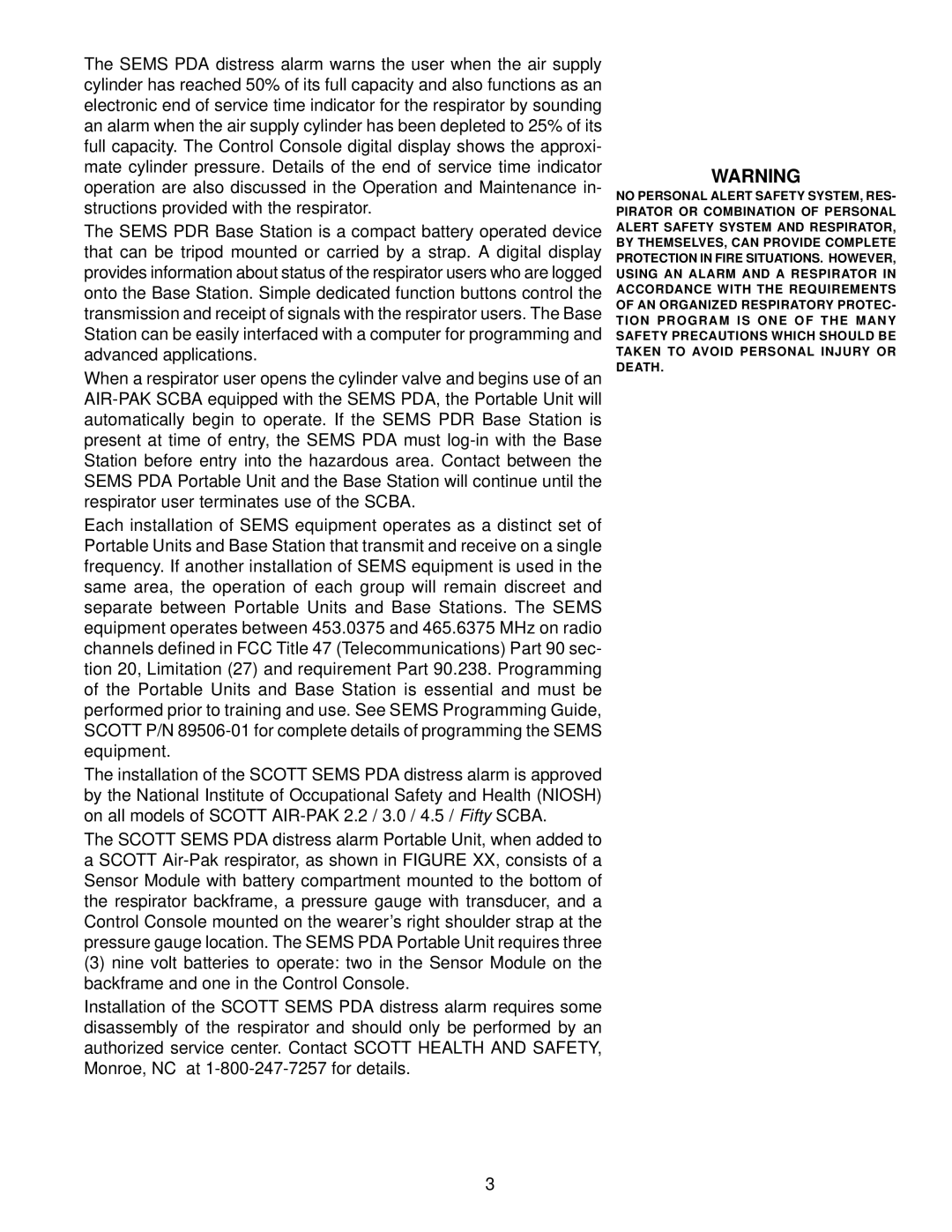The SEMS PDA distress alarm warns the user when the air supply cylinder has reached 50% of its full capacity and also functions as an electronic end of service time indicator for the respirator by sounding an alarm when the air supply cylinder has been depleted to 25% of its full capacity. The Control Console digital display shows the approxi- mate cylinder pressure. Details of the end of service time indicator operation are also discussed in the Operation and Maintenance in- structions provided with the respirator.
The SEMS PDR Base Station is a compact battery operated device that can be tripod mounted or carried by a strap. A digital display provides information about status of the respirator users who are logged onto the Base Station. Simple dedicated function buttons control the transmission and receipt of signals with the respirator users. The Base Station can be easily interfaced with a computer for programming and advanced applications.
When a respirator user opens the cylinder valve and begins use of an
Each installation of SEMS equipment operates as a distinct set of Portable Units and Base Station that transmit and receive on a single frequency. If another installation of SEMS equipment is used in the same area, the operation of each group will remain discreet and separate between Portable Units and Base Stations. The SEMS equipment operates between 453.0375 and 465.6375 MHz on radio channels defined in FCC Title 47 (Telecommunications) Part 90 sec- tion 20, Limitation (27) and requirement Part 90.238. Programming of the Portable Units and Base Station is essential and must be performed prior to training and use. See SEMS Programming Guide, SCOTT P/N
The installation of the SCOTT SEMS PDA distress alarm is approved by the National Institute of Occupational Safety and Health (NIOSH) on all models of SCOTT
The SCOTT SEMS PDA distress alarm Portable Unit, when added to a SCOTT
(3)nine volt batteries to operate: two in the Sensor Module on the backframe and one in the Control Console.
Installation of the SCOTT SEMS PDA distress alarm requires some disassembly of the respirator and should only be performed by an authorized service center. Contact SCOTT HEALTH AND SAFETY, Monroe, NC at
WARNING
NO PERSONAL ALERT SAFETY SYSTEM, RES- PIRATOR OR COMBINATION OF PERSONAL ALERT SAFETY SYSTEM AND RESPIRATOR, BY THEMSELVES, CAN PROVIDE COMPLETE PROTECTION IN FIRE SITUATIONS. HOWEVER, USING AN ALARM AND A RESPIRATOR IN ACCORDANCE WITH THE REQUIREMENTS OF AN ORGANIZED RESPIRATORY PROTEC- TION PROGRAM IS ONE OF THE MANY SAFETY PRECAUTIONS WHICH SHOULD BE TAKEN TO AVOID PERSONAL INJURY OR DEATH.
3
